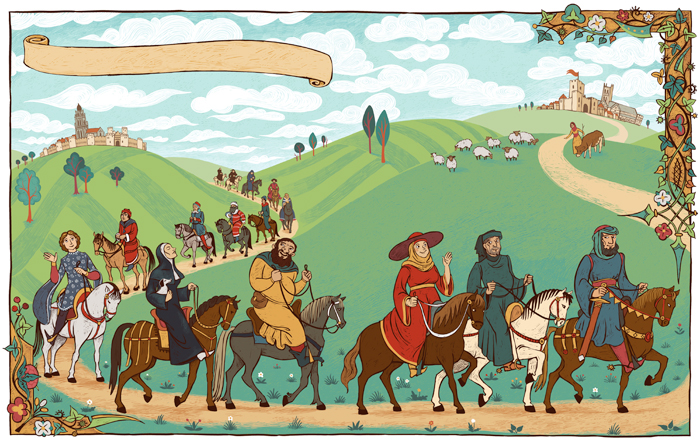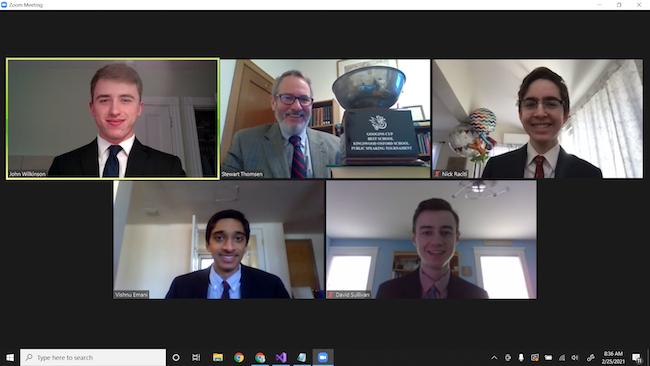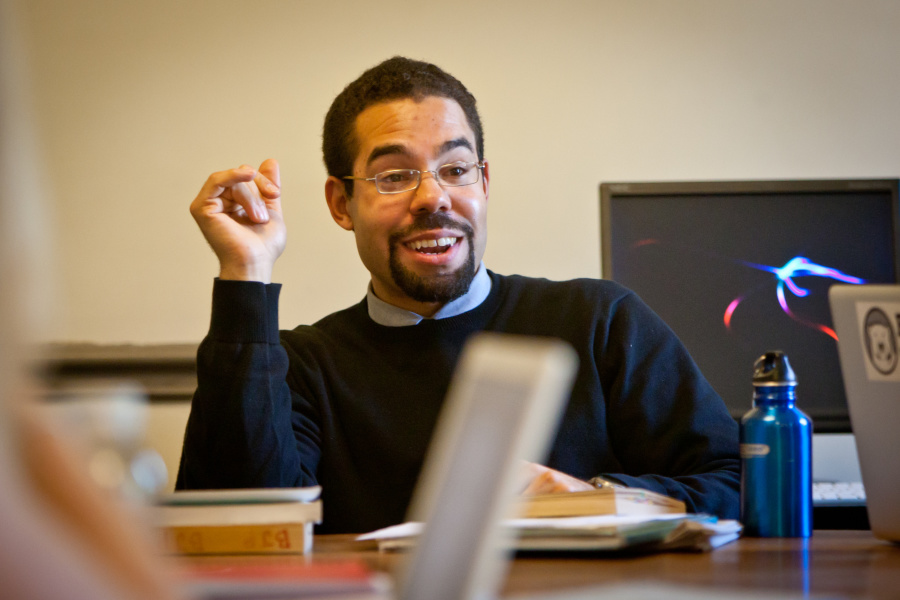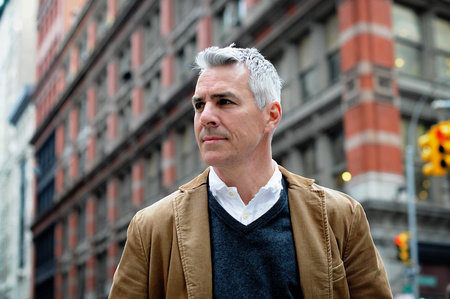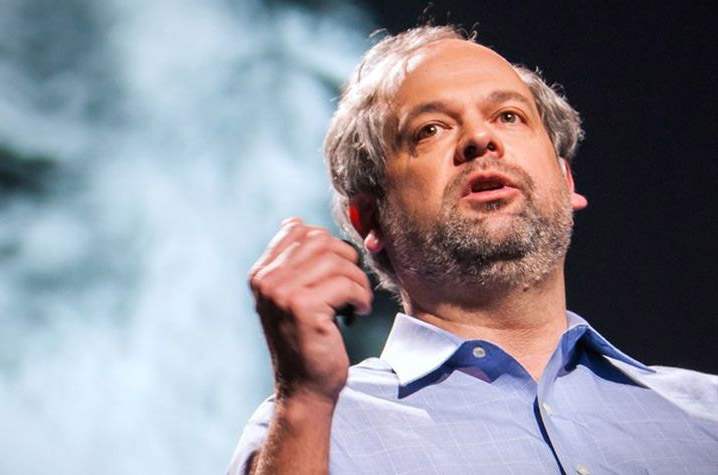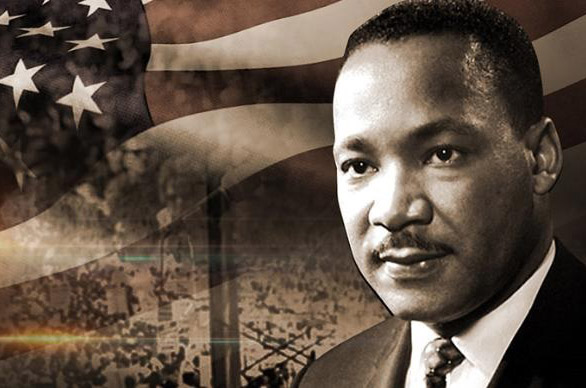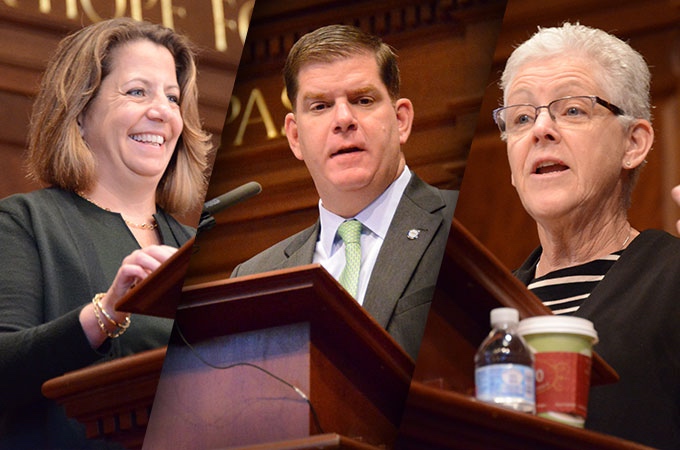“This is not your ancestors’ Canterbury Tales,” says Marge Dunn, director of this year’s Junior Play. “Six hundred years after Chaucer first sent his pilgrims ambling through the English countryside, the tales have been adapted and modernized in many ways. In our production, we witness the storytelling pilgrims through the lens of Monty Python—witty wordplay, outrageous characters, confusing accents, and modern references that will make you groan! With more than 50 characters spanning several species and time periods, this raucous romp is fun for the whole family!”
The Junior Play, which premieres virtually on March 5, includes nearly thirty Roxbury Latin boys—in Class VI through Class IV—who have been working on their parts since January, both in-person and in Zoom rehearsals. The resulting film was edited by Evan Scales, a Boston videographer.
Roxbury Latin boys in the cast:
Akhilsai Damera (IV)……..……..………….Boring Scholar
Aspen Johnson (VI)……….…….…………..Arcite, Farmer
Austin Reid (VI)………….………Gluttony, Emelye, Manny
Brendan Reichard (V).……Thief 1, Alex of Trebek, WP 1
Calvin Reid (V)………..………..……………………Lawyer
Edward Smith (VI)…..…………..…………………….Knight
Fintan Reichard (VI)………….….…………..Frankie, Lust
Grayson Lee (VI)………..…..………….Mrs. Bailey, Sloth
Joseph Wang (IV)……………..……………………Theseus
Liam Walsh (VI)…….……………..….…………….Pardoner
Lucas Vander Elst (IV)……………….…..WP 2, Old Widow
Marc Albrechtskirchinger (V)…………….……Chanticleer
Michael DiLallo (VI)…….…………..……………….…..Bob
Michael Strojny (V)……………..,,.………….……..Parson
Nick Glaeser (VI)……..……………..…..Geoffrey Chaucer
Nick Makura (V)…………..…………..……Tax Man, Pride
Nitin Muniappan (VI)………..…………..……………..Cook
Oliver Colbert (VI)……………..………….…………Palamon
Raj Saha (V)…………………………..Greed, Nun’s Priest
Ryan Miller (V)……………………………..…….King Larry
Ryan Peterson (IV)…………….……………….Thief 2, Fox
Sam DiFiore (V)…………………………………….Old Man
Sean DiLallo (IV)….……………………….……Wife of Bath
Simba Makura (VI)……………………………Physician, SM
Simon Albrechtskirchinger (VI)……………..….Envy, Friar
Theo Coben (IV)……………..………………….Harry Bailey
Tucker Rose (V)…………….……….………………..Anger
Xavier Martin (V)………..…….….……………Miller, Thief 3
Zach Heaton (V)……………….……………Pertelote, Devil
You can watch the production in its entirety here. (The production is 1 hour, 15 minutes long in its entirety.)

